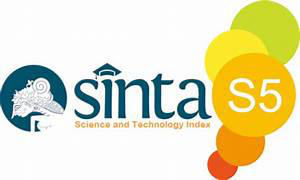EFEKTIVITAS KAMPANYE ANTI KANTONG PLASTIK DI SUPERMARKET DALAM MENYOKONG KONSEP KEBERLANJUTAN
Abstract
The study at hand investigates the efficacy of anti-plastic bag initiatives implemented in supermarkets and their contribution towards the promotion of sustainability. The issue that has been highlighted pertains to a deficiency in comprehending the concrete consequences of these endeavours. The primary aim of this study is to assess the efficacy of the campaign and ascertain potential techniques for promoting sustainable consumer behaviour, utilising the findings as a basis for further enhancement. In order to accomplish this objective, a research approach is employed which entails conducting surveys among a sample of 400 customers of supermarkets, followed by a comprehensive analysis of the collected data. The results suggest a notable decrease in the utilisation of plastic bags as a consequence of the campaign, hence illustrating its efficacy. This study not only emphasises the significance of these initiatives in promoting sustainability but also offers significant information for future policies targeting the promotion of sustainable consumption. This statement implies that effectively implemented marketing initiatives can significantly influence consumer behaviour and make a meaningful contribution towards achieving sustainability goals. The findings of this study have significant ramifications, indicating the possibility of implementing such programmes in several domains of consumer behaviour. This study serves as a foundation for further investigations into successfully implementing sustainable practises across diverse sectors.
References
Budiarti, W., Susilowati, S., & Farida, I. (2018). Upaya Pemanfaatan Sampah Plastik Kelompok Ibu-Ibu Dasawisama Gladiol 161 di Perumahan Magersari Permai, Kabupaten Sidoarjo. Jurnal Komunikasi Profesional. https://doi.org/10.25139/jkp.v2i2.1377
De Leon, M. V, Susilo, D., Putranto, T. D., Hartati, F. K., & Santos, R. R. T. (2021). Managing the uncertainty during COVID-19 pandemic: Communicating disaster and food industry sustainability. In Y. A.C., S. D.F., M. M.T., & R. R. (Eds.), 2nd International Conference Earth Science and Energy, ICESE 2020 (Vol. 819, Issue 1). IOP Publishing Ltd. https://doi.org/10.1088/1755-1315/819/1/012039
Dotlačil, J., & de Haan, P. (2021). Parsing model and a rational theory of memory. Frontiers in Psychology, 12, 657705.
Dubey, R., & Griffiths, T. L. (2020). Reconciling novelty and complexity through a rational analysis of curiosity. Psychological Review, 127(3), 455.
Frianda, V., Hairunnisa, H., & Ghufron, G. (2018). Strategi Komunikasi Lembaga Swadaya Masyarakat Gerakan Memungut Sehelai Sampah (LSM GMSS) Dalam Mengkampanyekan Larangan Membuang Sampah Di Sungai Karang Mumus Samarinda. EJournal Ilmu Komunikasi, 6(2).
Hahn, M., Futrell, R., Levy, R., & Gibson, E. (2022). A resource-rational model of human processing of recursive linguistic structure. Proceedings of the National Academy of Sciences, 119(43), e2122602119.
Hendarsyah, R., Sumarwan, U., & Yuliati, L. N. (2020). Green Consumer Behavior Masyarakat Kota Bogor dalam Tata Laksana Sampah Plastik. Jurnal Ilmu Keluarga Dan Konsumen, 13(2), 187–198. https://doi.org/10.24156/jikk.2020.13.2.187
Hidayat, E., Susilo, D., & Garcia, E. M. A. (2021). Handling Covid-19 in Sampang: leadership and local elite public communication strategy. Jurnal Studi Komunikasi, 5(2), 319–335. https://doi.org/10.25139/jsk.v5i2.3613
Jara-Ettinger, J. (2019). Theory of mind as inverse reinforcement learning. Current Opinion in Behavioral Sciences, 29, 105–110.
Karuniastuti, N. (2014). Teknologi Biopori untuk Mengurangi Banjir dan Tumpukan Sampah Organik. Jurnal Forum Teknologi, 04(2), 64.
Mihardja, E. J., Komsiah, S., & Harmaningsih, D. (2021). Campaign “BOTAK”(bogor without plastic bags) as an environmental communication model for reducing plastic waste in marine environment. IOP Conference Series: Earth and Environmental Science, 674(1), 012101.
Neuman, W. (2013). Metodologi penelitian sosial: Pendekatan kualitatif dan kuantitatif. PT. Indeks.
Novianty, M. (2013). Dampak Program Bank Sampah Terhadap Sosial Ekonomi Masyarakat Di Kelurahan Binjai, Kecamatan Medan Denai, Kota Medan. Welfare State, 2(4).
Nugraheni, Y., & Widyaningrum, A. Y. (2019). Dinamika Sikap Warga atas Program CSR Bank Sampah Gunung Anyar Surabaya. Jurnal Studi Komunikasi (Indonesian Journal of Communications Studies). https://doi.org/10.25139/jsk.v3i1.1419
Primayanti, N. W., & Puspita, V. (2022). Local wisdom narrative in environmental campaign. Cogent Arts & Humanities, 9(1), 2090062.
Roka, K. (2020). Environmental and Social Impacts of Food Waste (pp. 216–227). https://doi.org/10.1007/978-3-319-95726-5_17
Sabila, F., & Ekasari, A. (2023). Anteseden Behavioral Intention Penggunaan Reusable Bag. Innovative: Journal Of Social Science Research, 3(4), 10244–10255.
Sedek, S. S. S. (2021). Sustainable development of plastic pollution awareness campaigns on social media. International Design Journal, 11(2), 339–364.
Spranz, R., & Schlüter, A. (2023). The plastic bag habit and the ocean Bali: From banana leaf wrappings to reusable bags. In Ocean Governance: Knowledge Systems, Policy Foundations and Thematic Analyses (pp. 319–335). Springer International Publishing Cham.
Susilo, D. (2021). AKSI-AKSI WARGANET PADA BERITA DARING: Cabaran pada Studi Posfeminisme dan Politik. Airlangga University Press.
Susilo, D. (2022). Teori - teori Komunikasi Manusia. Gramedia.
Susilo, D., del Rosario, J. M. S., Navarro, M. E. T., Smith, J. C. M., & Primadini, I. (2022). Green Campaign of Food Waste Handling: Communicating the Food Sustainability. IOP Conference Series: Earth and Environmental Science, 1097(1), 012009. https://doi.org/10.1088/1755-1315/1097/1/012009
Susilo, D., & Hui Chen, L. (2023). Model of Persuasive Communication for Russian Tourists on Handle of Digital Nomad. International Journal of Research and Review, 10(5), 415–424. https://doi.org/10.52403/ijrr.20230549
Suwerda, B. (2012). Bank Sampah [Kajian Teori Dan Penerapan]. CV. Rihama Rohima.
Utomo, A. S., Utari, T., & Nababan, S. (2023). Indonesian Ocean Pride Communication Strategy in Reducing Plastic Waste in Indonesia. LITERATUS, 5(1), 121–129.
Wardi, I. (2011). Pengelolaan Sampah Berbasis Sosial Budaya: Upaya Mengatasi Masalah Lingkungan di Bali. Bumi Lestari Journal of Environment, 11(1), 167–177.
DOI: 10.33751/jpsik.v7i2.9092
Refbacks
- There are currently no refbacks.

This work is licensed under a Creative Commons Attribution-ShareAlike 4.0 International License.













